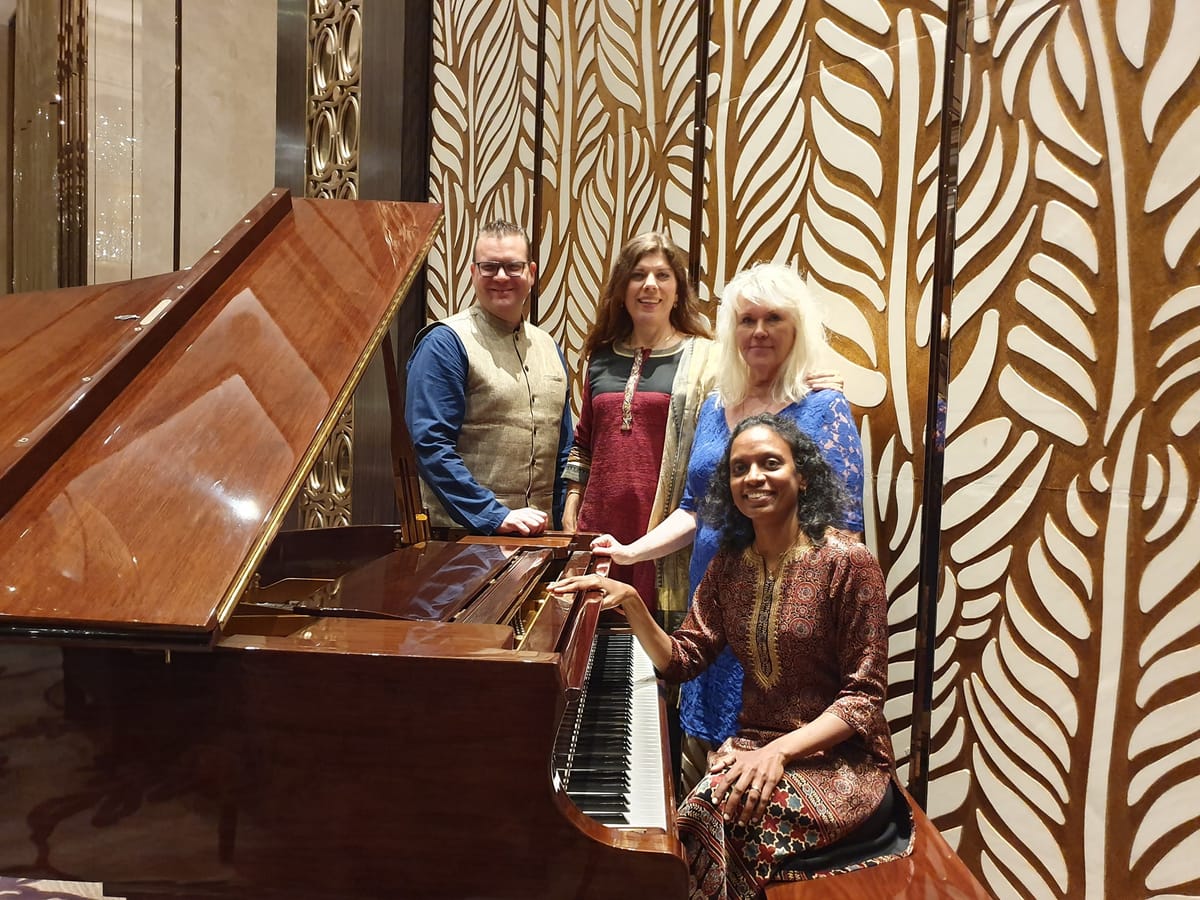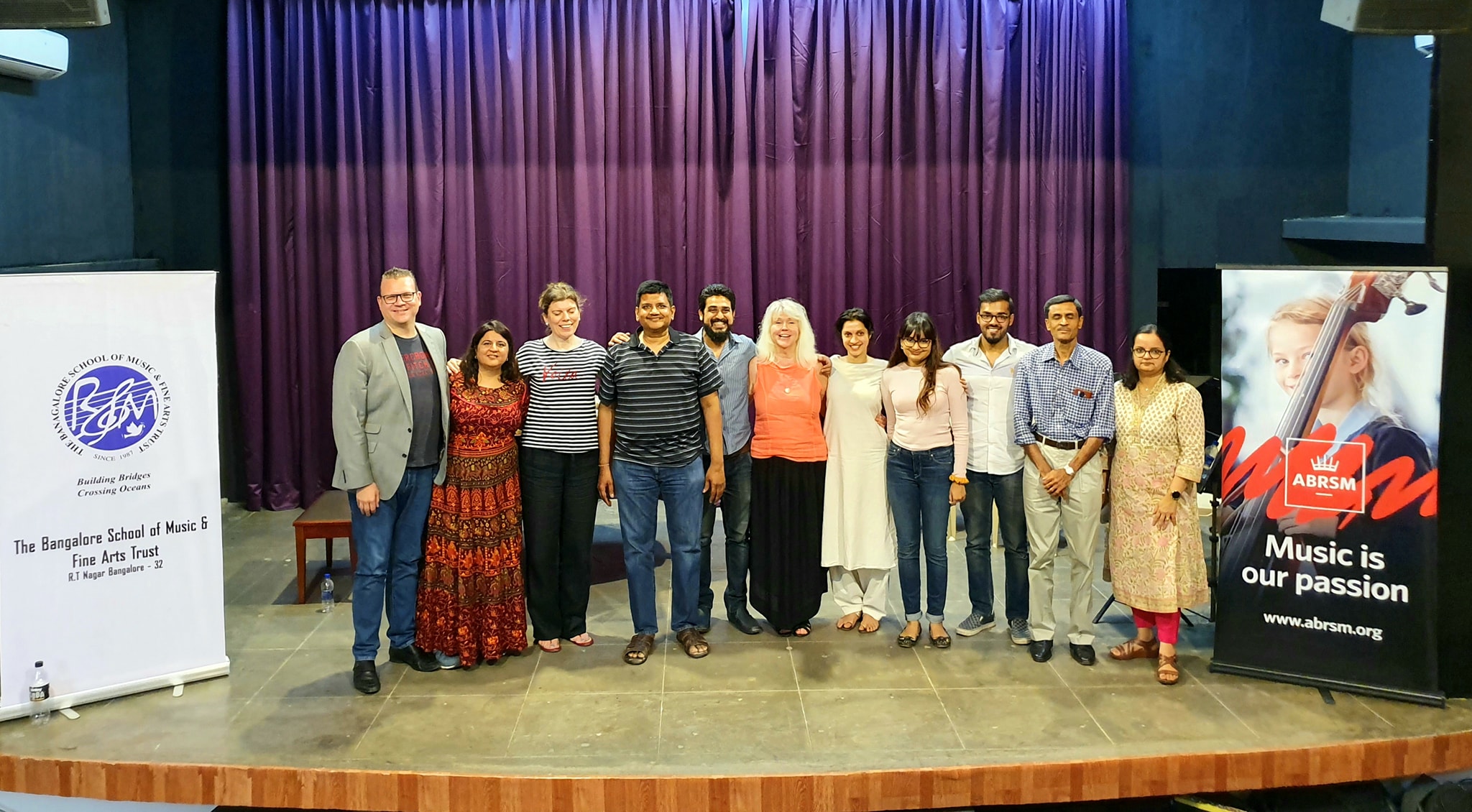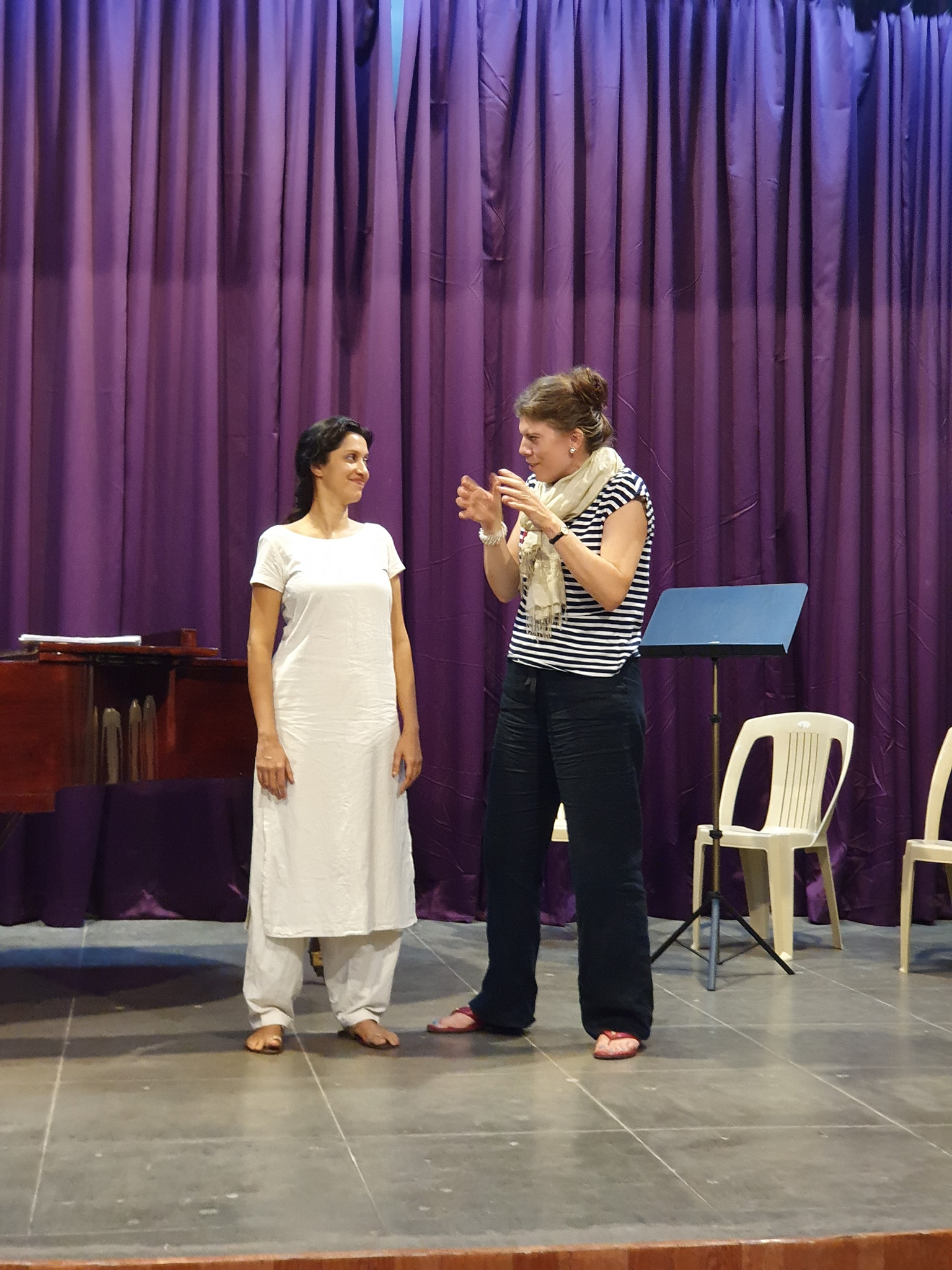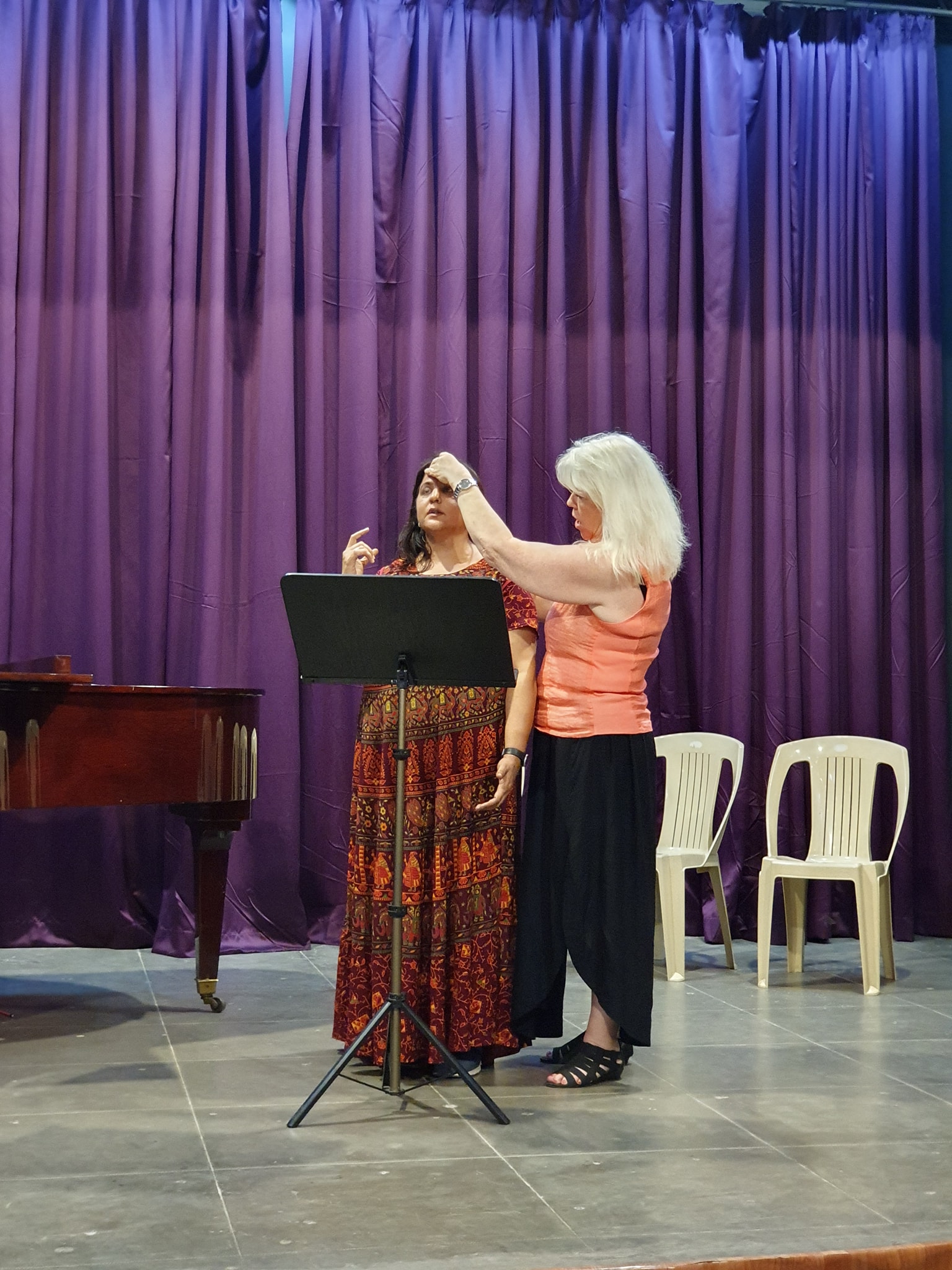“Talent” versus “Learnt skill” – reflections on an Indian learning process

My two last Bangalore visits were both in 2016 and 2017 within the “East-West Song and Dance Encounter”, hosted by The Bangalore School of Music. This year their Head of Vocal Department, Mr Jonas Olsson, had arranged the festival “Voices of Bangalore” in mid-June, a three-day festival of concerts, workshops, singing lessons and seminars, in the collaboration with the ABRSM Chapter of Karnataka. It is always with great joy I come back to Bangalore to meet with old and new friends in music. This time I also brought my soprano friend Lena Moén, since the demand for lessons and the general workload is ever increasing at my visits.
It was pleasing to see that circumstances around workshops and concerts had improved. As always, the audiences are incredibly warm and I love chatting to people afterwards about their experiences.
Students’ voices this time had indeed developed. Several of them I have worked with before and lessons were generally going well. I am very pleased that the general interest and knowledge about art song is gradually increasing. We also understood the benefits of open, longer masterclasses to all students and teachers. Everyone then takes part in the learning processes of other students and suck up the nectar of the situation.

My colleague Lena and I were overwhelmed with the hunger for lessons and the high ambition among students: one gentleman had travelled 16 hours on the train from Trivandrum, bringing the Schubert “Liebesbotschaft” from “Die schöne Müllerin”. We were deeply impressed.
A finger of warning: I often hear in India people talking about “talent” and “gift”. Especially from parents. These concepts are damaging to students of all ages. They can create the false sensation of pride in some students and pangs of worries in others. They can deprive us from the responsibility to learn well, to practice more, to develop personal discipline. The real gift is the willingness to work hard. Its fruits are always sweet!
Children who are labelled “child prodigy” end up, in many cases, sounding like they’re imitating an adult opera singer with bad habits. The result is not pleasing. Their bodies are not adapted to this technique. Individual voice training may start after 16 years of age. Young children shouldn’t train Western classical singing individually. I get approached by quite many hopeful Indian parents, talking about their (talented) child. It’s saddening to know that what they really need, are healthy children’s choirs and youth choirs. I see a great need in India for unamplified children’s choirs and youth choirs singing repertoire adapted for young voices. No pop covers, but real arrangements in unison or in two-three-part arrangements sung in the head voice – the lighter, airy, softer sound, no pressed or nasal phonation. A (tuned) piano goes lovely with it, too.

Very entertaining but disheartening are the TV shows around the world in the formats of “Britain’s got talent”, “X-factor Sweden”, every now and then putting forth the odd 10-year old girl, mostly singing Puccinis “O mio babbino caro”.
We all know the script. Shy dressed-up girl goes on stage, jury members exchange the skeptical glances, then a close up on audience laughing, waiting for the catastrophe to take place on stage. Music is turned on in the loudspeakers, little 11-year old girl sings the first lines of the aria. After two seconds the audience starts howling, roaring applauses drowning the girl. Close up on jury members: eyes open wide, hands on cheeks, arms in air “YES-YES-YESSS!!”, female very skeptical jury member then goes “oooh-myyy-goood!!”. Hands are slamming red buttons and the success is a fact. “This is OPERA/this girl’s got talent/she outnumbers any adult opera singer!”. We want this drama – the little child obviously being touched by the Divine in front of our eyes.
For some reason, we never hear about these talented girls after the show.

Let’s start talking about “learned skill” instead. Boring, boring! But it pays off in the real musicians’ world.
Rehearsal morals, good attitude, personal discipline and a happy interest in pursuing one’s passion, beats “talent” seven days a week. Because with talent only, what happens the day a singer is having a cold, or is feeling sad or tired? The educated singer then relies on her/his technique, knowledge and skill.
I’m not always in top shape vocally or physically – a headache, recovering from a cold or jet lag might interfere. But I know exactly how to compensate, and the audience won’t hear the difference. As a famous Swedish opera singer once said: “I had one day in my career when everything felt just perfect – voice, body, circumstances. Only that I had no performance that evening.”





